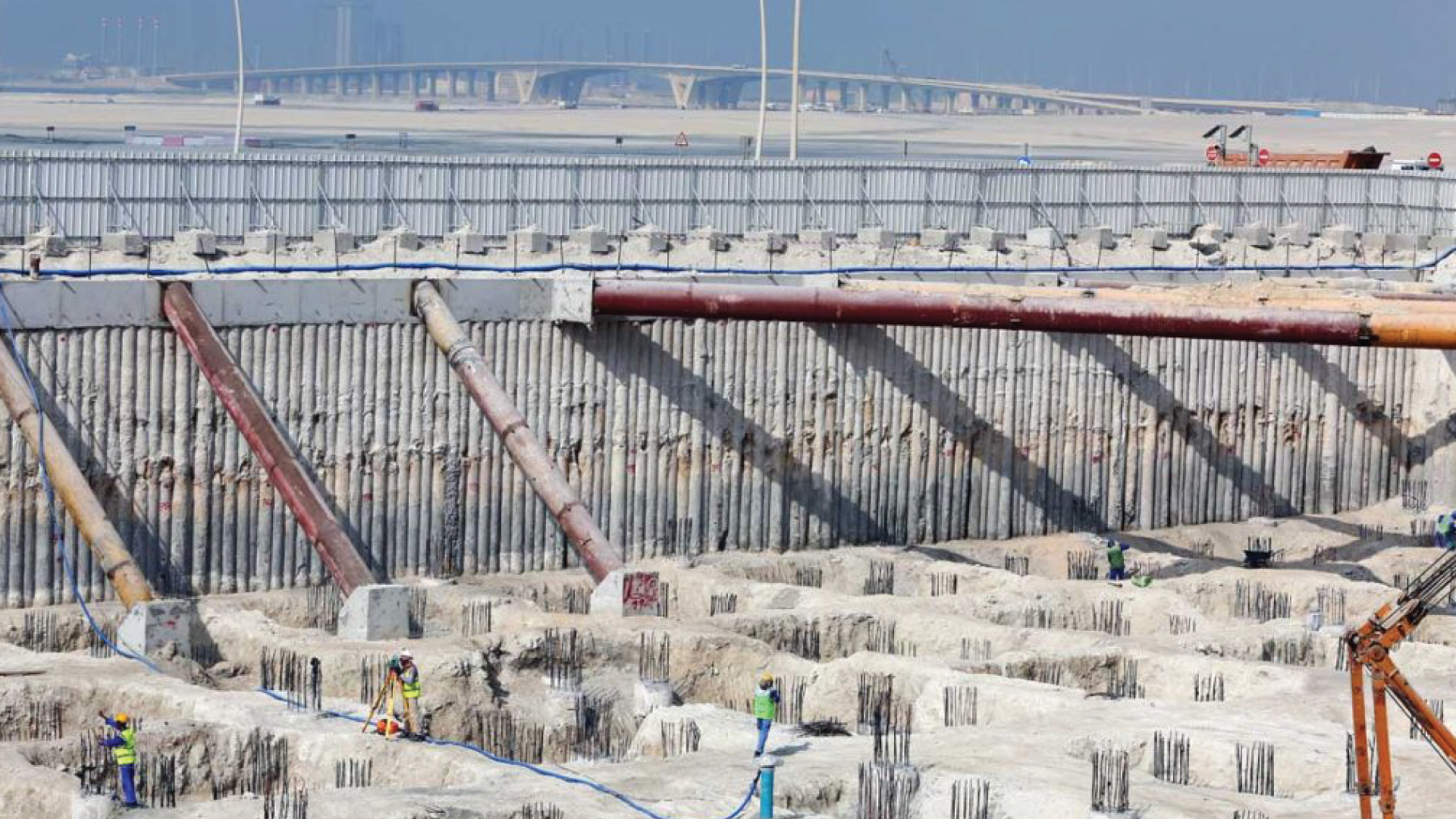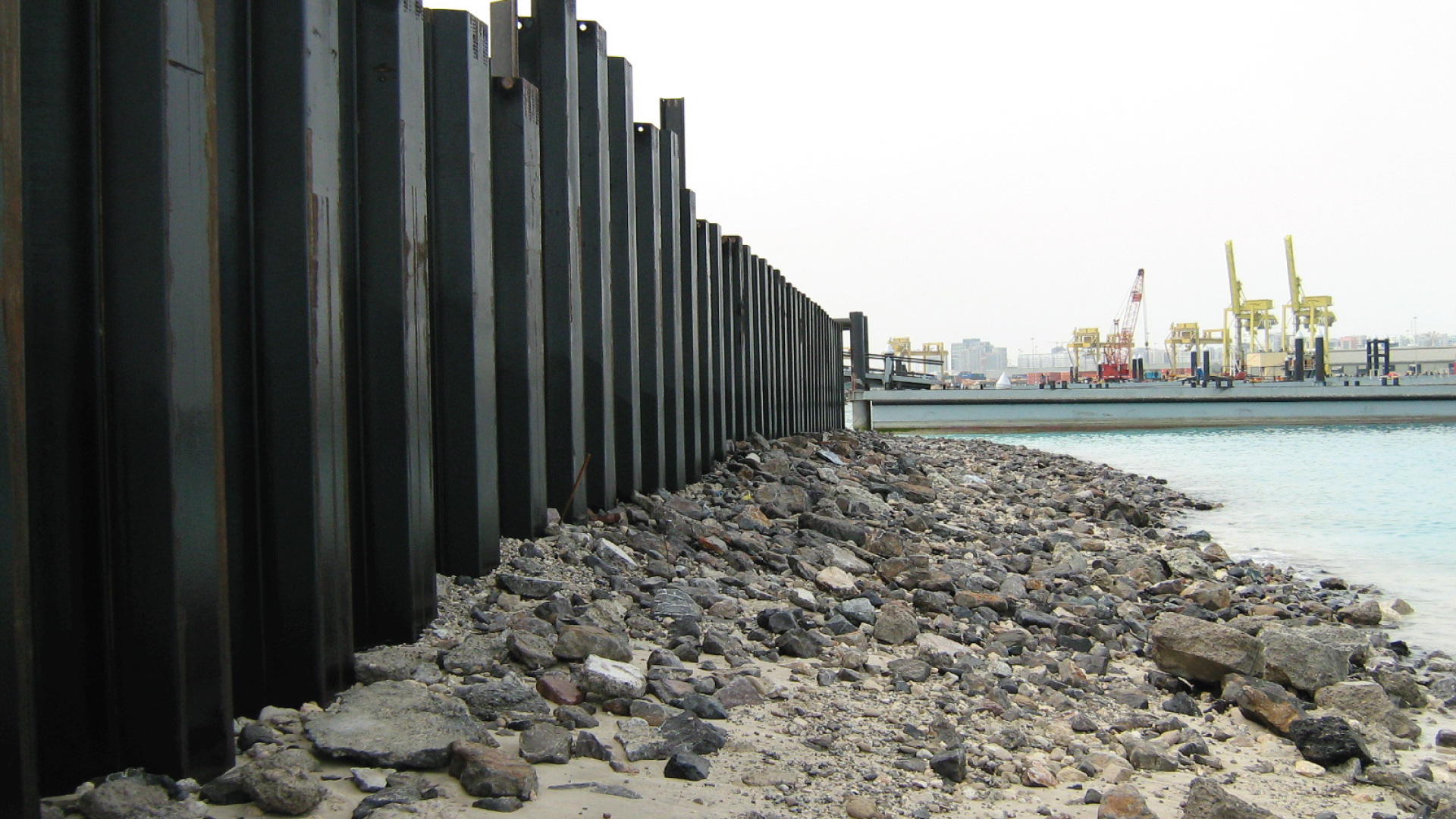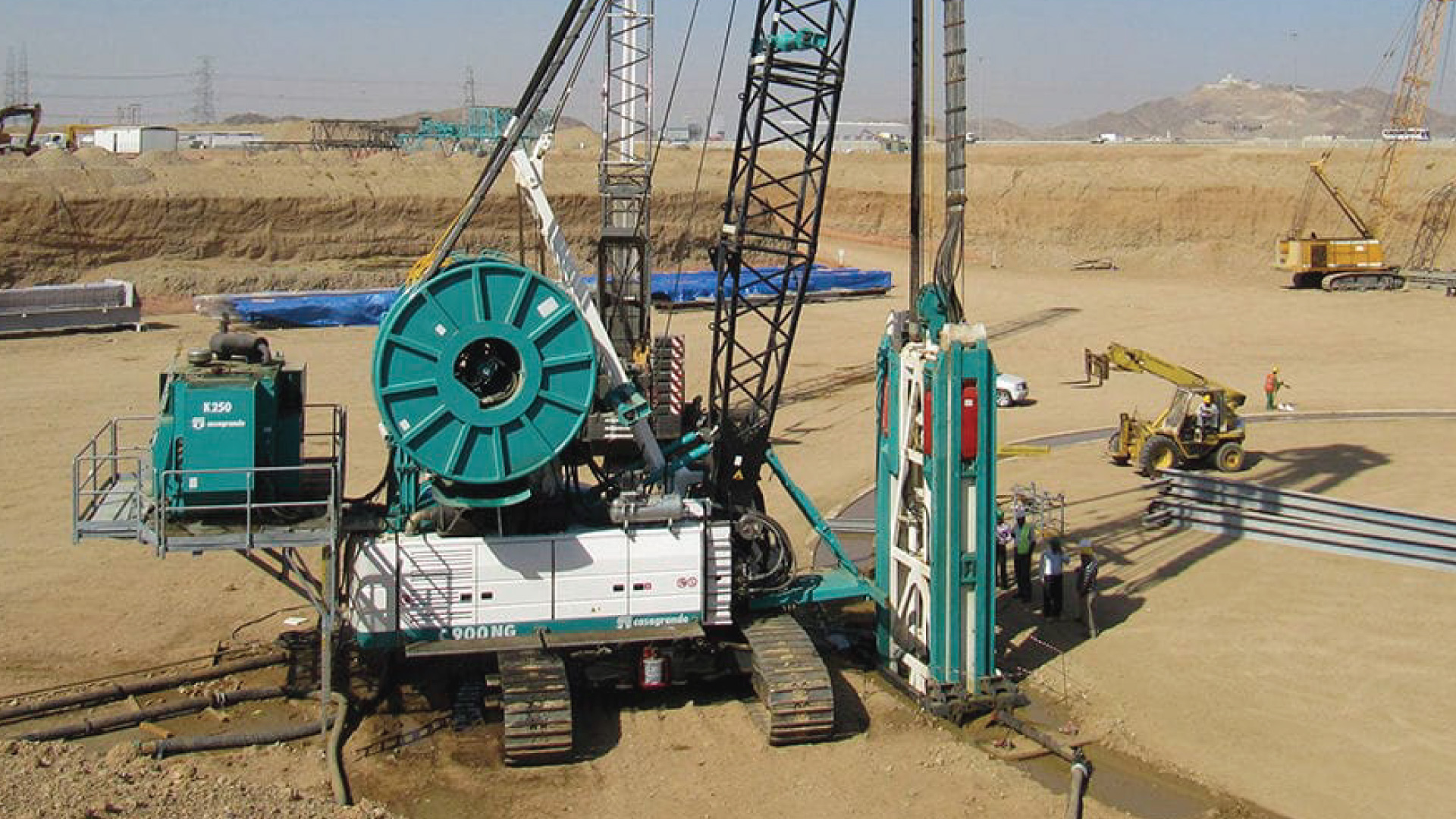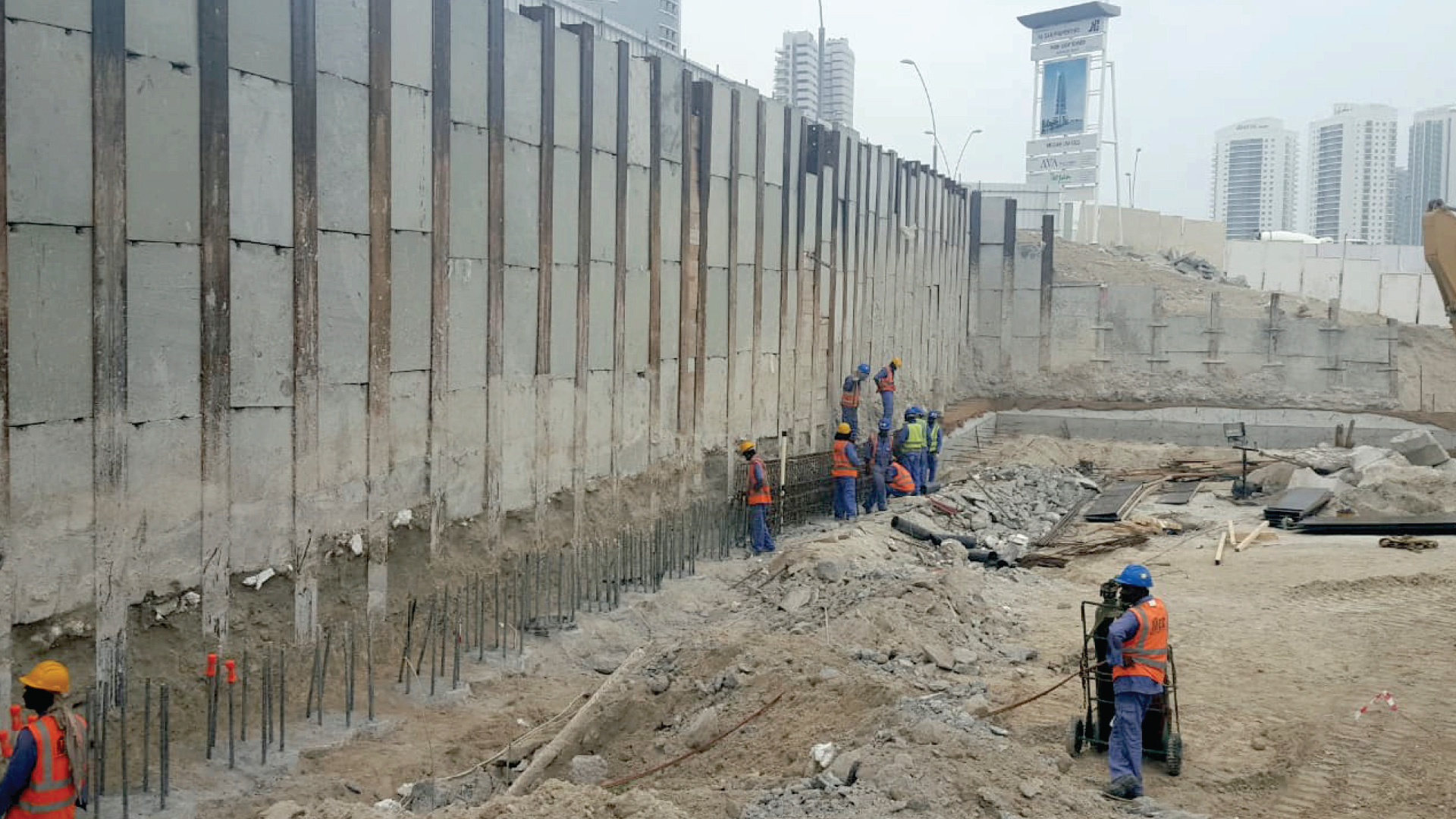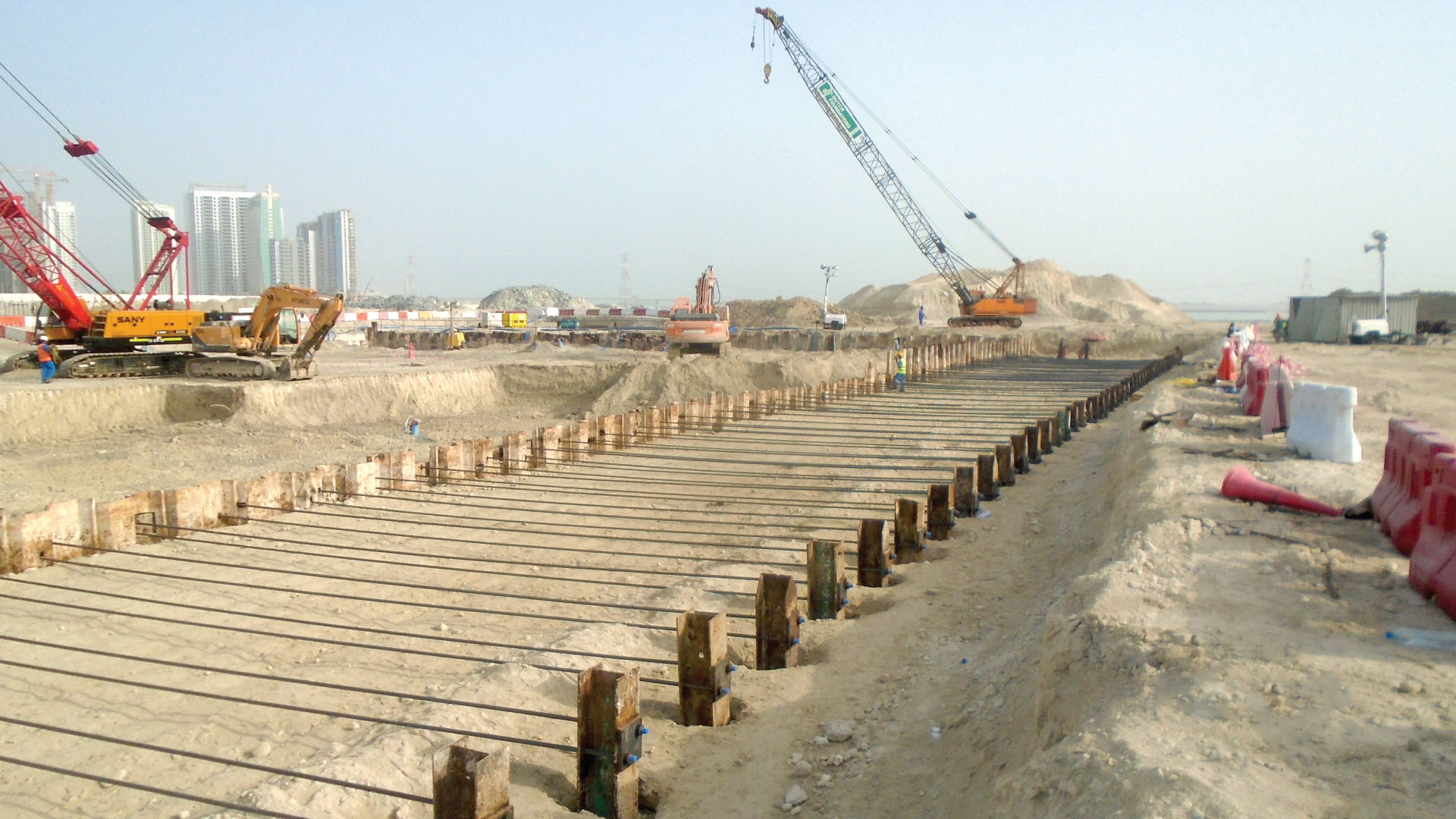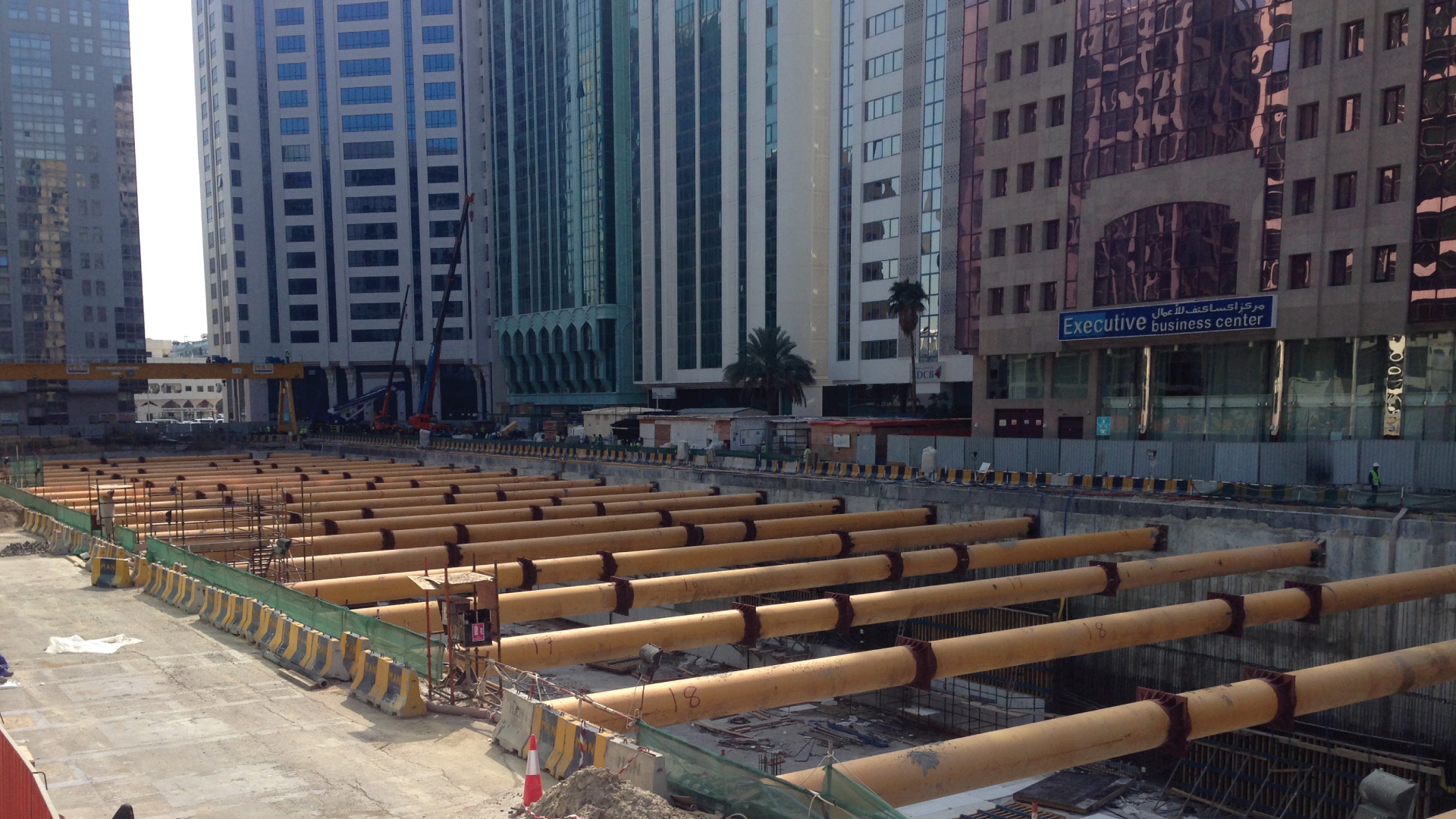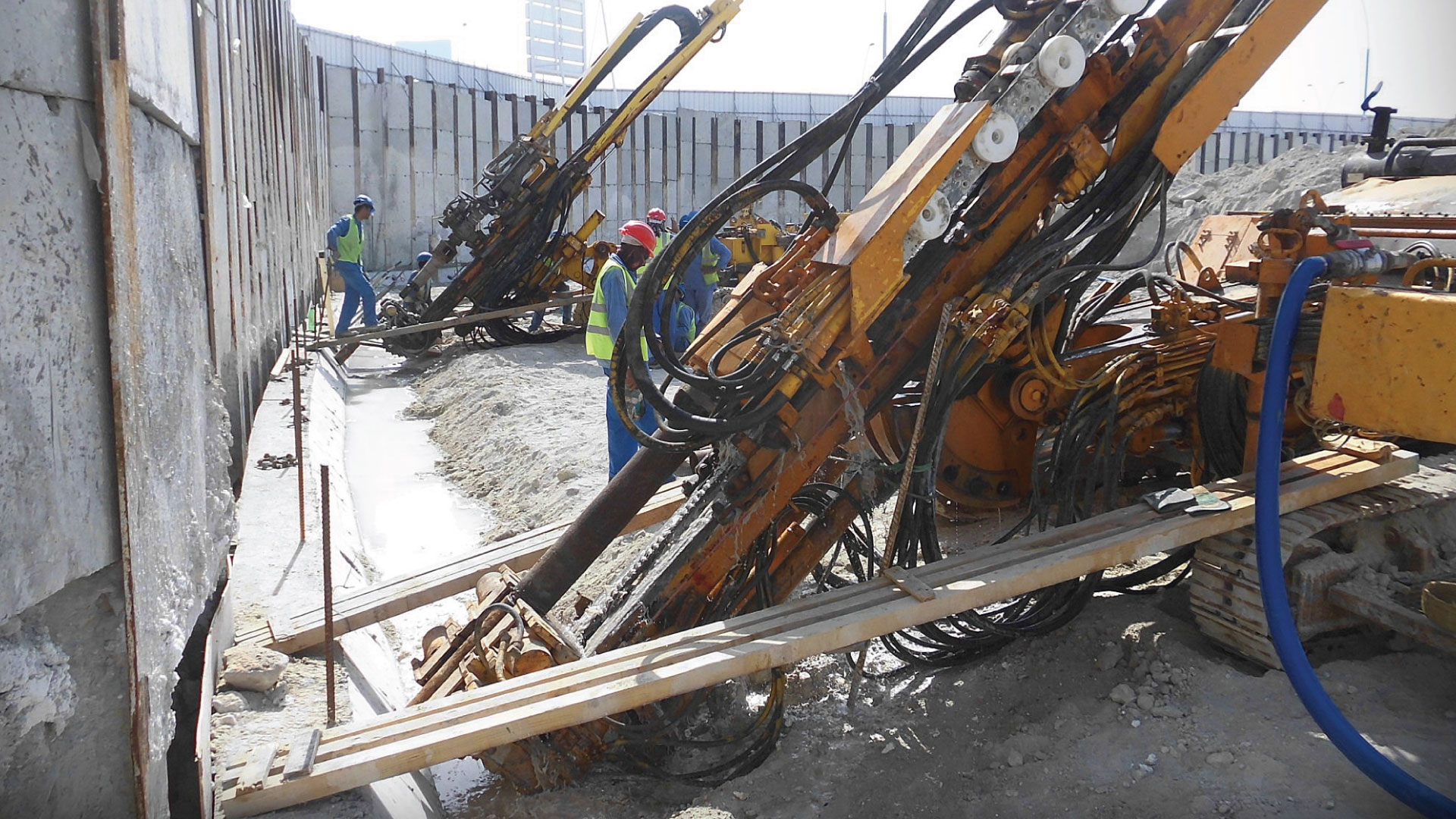Earth Retaining Structures
Earth retaining structures hold back soil or rock, preventing landslide caused by gravity or erosion. In deep excavations, earth retaining walls must withstand great lateral earth pressures and hydrostatic pressures caused by ground water. Depending on design requirements, several pile types and configurations are used to construct retention systems.
CONTIGUOUS BORED PILE WALL
Closely spaced piles used to form retaining walls in areas where water inflows are not significant.
SECANT BORED PILE WALL
SECANT BORED PILE WALL
SECANT BORED PILE WALL
SECANT BORED PILE WALL
Secant (tangent) piles are interlocking piles that form a continuous watertight wall. A continuous reinforced concrete guide wall.
SHEET PILE WALL
Sheet pile walls are constructed by driving prefabricated reusable panels into the ground.
DIAPHRAGM WALLS
Diaphragm walls are formed from cast-in-place reinforced concrete panels with interlocking vertical joints that provide.
SOLDIER/KING PILE & LAGGING
Soldier piles, are steel wide flange H-beam piles spaced 1 to 3 meters apart. They are driven into the ground prior to excavation.
ANCHORS & TIEBACKS
Tie-backs may be used to avoid overstress due to large cantilever lengths. Stressed anchors (tiebacks) are constructed.
STRUTTING & BRACING SUPPORT
In situations where anchors cannot be used or only temporary retaining wall support is required, or for other reasons, struts.
SOIL NAILING
The main purpose of soil nailing is to construct a retaining wall or reinforce, strengthen and thus stabilize ground.
DUTCH FOUNDATIONS
FOLLOW US —


